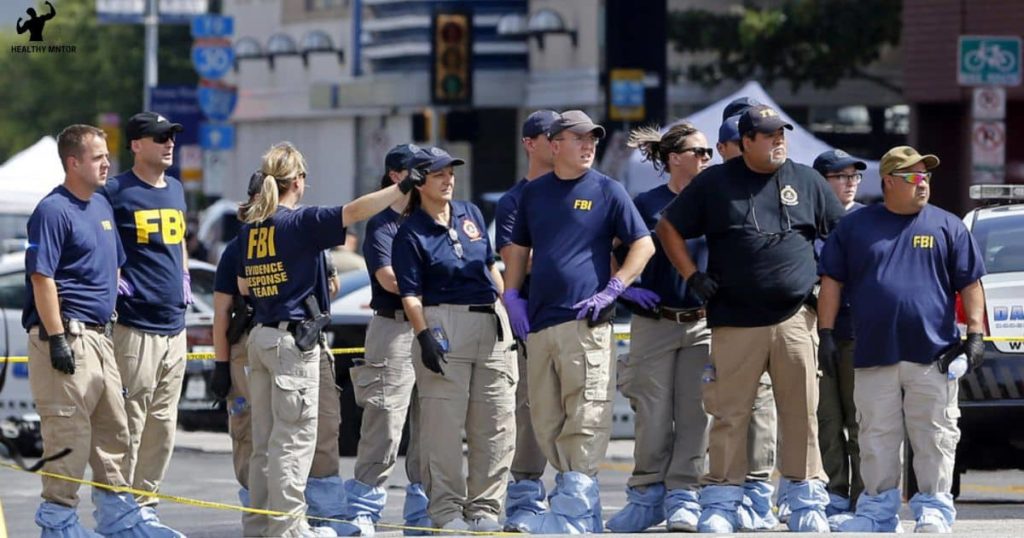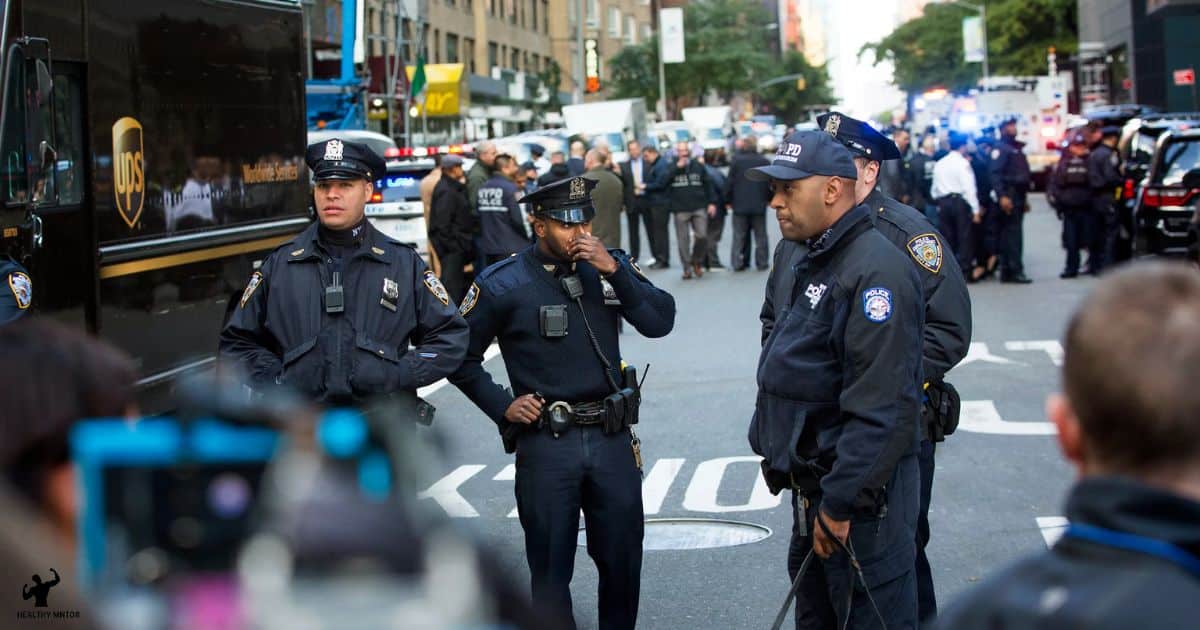In times of mental health crisis, a helping hand can make all the difference. When traditional emergency services may not be the most suitable response, it is crucial to know who to call for support. This article explores alternative resources for mental health crisis intervention, shedding light on the role of non-police crisis response teams and the importance of de-escalation. Discover the safer options available, including mobile crisis units, hotlines, and helplines, providing immediate assistance and a sense of belonging for those seeking help.
Key Takeaways
- Crisis hotlines staffed by mental health professionals are a valuable resource for individuals in mental health crisis, offering immediate support and appropriate referrals.
- Non-police crisis response teams, consisting of mental health professionals, prioritize de-escalation techniques, empathy, and connection to provide a safe and compassionate approach to crisis intervention.
- Mobile crisis units, which collaborate with mental health professionals and emergency services, offer on-site evaluation, intervention, and referral services, ensuring immediate assistance and addressing underlying mental health issues for long-term recovery.
- Accessing mental health treatment facilities during crisis situations provides individuals with a safe and supportive environment, where trained professionals offer compassionate and knowledgeable care, fostering a sense of belonging and providing specialized support.
Alternative Resources for Mental Health Crisis Intervention
The exploration of alternative resources for mental health crisis intervention offers a promising avenue for improving the overall well-being and safety of individuals experiencing acute psychological distress. In recent years, there has been a growing recognition of the limitations and potential harm that can arise when law enforcement is the first response to mental health crises. Alternative resources, such as crisis hotlines staffed by mental health professionals, mobile crisis units, and community-based crisis intervention teams, provide individuals with access to trained professionals who can offer immediate support, assessment, and appropriate referrals. These resources prioritize empathy, understanding, and compassion, recognizing that individuals in crisis require specialized care and treatment. By diverting mental health crises away from law enforcement and towards alternative resources, communities can promote a sense of belonging and safety for individuals seeking assistance during the most challenging moments of their lives.
The Role of Non-Police Crisis Response Teams

Frequently overlooked, but essential, the implementation of non-police crisis response teams is crucial in providing appropriate and effective support for individuals experiencing mental health crises. In recent years, there has been a growing recognition of the need for alternative resources to address mental health emergencies. Traditional law enforcement responses often escalate situations and can lead to unnecessary harm or loss of life. Non-police crisis response teams, staffed by mental health professionals and social workers, offer a compassionate and knowledgeable approach to crisis intervention. These teams prioritize de-escalation techniques, empathy, and connection, providing a safe space for individuals to receive the help they need. By diverting mental health crises away from law enforcement, non-police crisis response teams can foster a sense of belonging and trust within communities, ensuring that individuals receive the appropriate support and treatment they deserve.
Understanding the Importance of De-escalation in Mental Health Crisis Situations
Implementing effective de-escalation techniques is vital in mental health crisis situations as it allows for a safer and more compassionate approach to supporting individuals in distress. When someone is in the midst of a mental health crisis, their emotions can be overwhelming, and their behavior may become erratic or aggressive. In these moments, it is crucial to approach the situation with empathy and understanding, rather than resorting to force or coercion. De-escalation techniques involve active listening, validating the person’s feelings, and offering support and reassurance. By employing these strategies, we can create a sense of safety and trust, which can help the individual feel heard and understood. It is essential to remember that everyone deserves to be treated with dignity and respect, especially during times of vulnerability. Together, we can foster an environment where individuals feel a sense of belonging and receive the support they need in their mental health journey.
Exploring Mobile Crisis Units as a Safer Option for Immediate Assistance
By considering the implementation of mobile crisis units and fostering collaboration between mental health professionals and emergency services, we can ensure a safer option for immediate assistance in mental health crisis situations. It is crucial to recognize that individuals experiencing a mental health crisis require specialized care and support. Mobile crisis units, composed of mental health professionals, can provide on-site evaluation, intervention, and referral services. These units are equipped to handle a range of mental health emergencies, offering a compassionate and empathetic response to those in need. By working in collaboration with emergency services, such as police and paramedics, these mobile crisis units can provide a holistic and comprehensive approach to crisis intervention. This approach not only ensures the safety and well-being of individuals in crisis but also addresses the underlying mental health issues, promoting long-term recovery and reducing the likelihood of future crises. Together, we can create a community where individuals feel supported and understood, fostering a sense of belonging and inclusivity.
Accessing Mental Health Treatment Facilities During Crisis Situations
During crisis situations, individuals can seek immediate assistance by accessing mental health treatment facilities equipped to provide specialized care and support. These facilities offer a safe and supportive environment for individuals experiencing mental health crises. Trained professionals, such as psychiatrists, psychologists, and counselors, are available to provide compassionate and knowledgeable care to those in need. In these treatment facilities, individuals are treated with empathy and respect, allowing them to feel a sense of belonging and understanding. By reaching out to mental health treatment facilities during times of crisis, individuals can receive the appropriate help they need to navigate through difficult situations. It is important for individuals to know that they are not alone and that there are resources available to support them during these challenging times. Let’s Find out more information on Who to Call for Mental Health Crisis Instead of Police? In this article.
Hotlines and Helplines: Immediate Support for Mental Health Emergencies
Numerous hotlines and helplines, including the National Suicide Prevention Lifeline and Crisis Text Line, offer immediate support and assistance for individuals facing mental health emergencies. These resources are essential in providing a lifeline for those in crisis, ensuring they receive the help they need. Here are four reasons why hotlines and helplines are crucial:
- Accessibility: Hotlines and helplines are accessible 24/7, providing support whenever it is needed. They eliminate the barriers of time and location, ensuring that help is always just a phone call or text message away.
- Trained professionals: These services are staffed with trained professionals who have a deep understanding of mental health and crisis intervention. They are equipped to offer empathetic and non-judgmental support, guiding individuals through their difficulties.
- Confidentiality: Hotlines and helplines prioritize confidentiality, ensuring that individuals can share their struggles without fear of judgment or repercussions. This creates a safe space where people can freely express their emotions and seek guidance.
-
Connection to resources is one of the key signs of stress affecting mental health. In addition to offering immediate support, hotlines and helplines can connect individuals to local mental health resources. They can provide information about therapy options, support groups, and other services that can assist in their long-term recovery.
When 911 Is the Only Option: Understanding the Limitations and Challenges
In emergency situations involving mental health crises, individuals may find themselves in a complex predicament where calling 911 is the only viable option for immediate assistance and understanding the limitations and challenges that can arise in such circumstances is crucial. It’s important to recognize that emergency responders, such as police officers, may not always have the necessary training or expertise to handle mental health crises effectively. This can result in unintended consequences, such as escalation or further harm to the individual in crisis. As a society, we need to explore alternative options and invest in mental health resources that provide specialized care during these emergencies. This could include crisis hotlines staffed by mental health professionals, mobile crisis teams, or community-based crisis centers. By advocating for these alternatives, we can ensure that individuals in mental health crises receive the support and understanding they need, fostering a sense of belonging and compassion in our communities.
Conclusion
In conclusion, it is crucial to have alternative resources available for individuals experiencing a mental health crisis. Non-police crisis response teams, mobile crisis units, and mental health treatment facilities can provide safer and more appropriate interventions. Hotlines and helplines also offer immediate support for mental health emergencies. However, it is important to acknowledge the limitations and challenges of relying solely on 911 in these situations. By prioritizing de-escalation and utilizing these alternative resources, we can provide compassionate and effective care for those in need. Remember, mental health matters.





